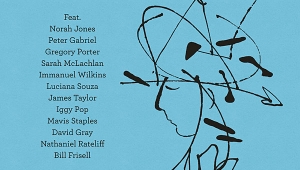| Columns Retired Columns & Blogs |
"All of these attributes are slightly more pronounced in the LP format, especially the ambience. The CD, by comparison, seems to box up the soundstage, but that is its most severe shortcoming." Hmmmmmm. To bad.
Also a lovely title work and beautiful recording with Arturo Delmoni is "The glass Bead Game" found on the John Marks Records label. On the down side, it is only available on the low res. "inferior for ever" format of THE five inch, shiney silver thingy.
Happy Listening!
 Songs My Mother Taught Me
Songs My Mother Taught Me






































